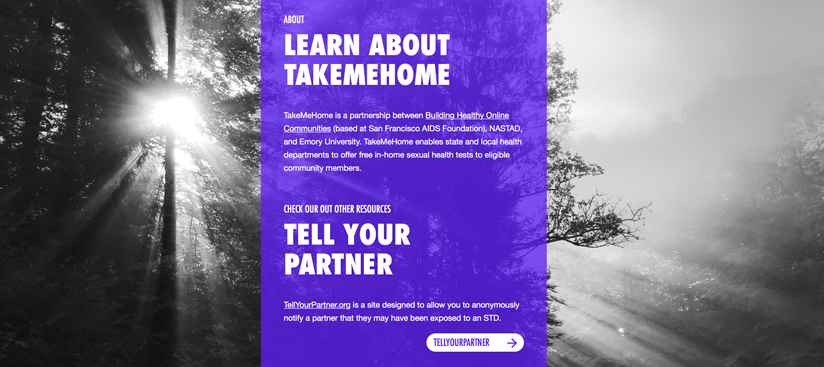Research Spotlight: Travis Sanchez

Research associate professor, Travis Sanchez, DVM, MPH, along with colleagues in Programs, Research & Innovation in Sexual Minority Health (PRISM Health) are leading national surveys looking at the implications of COVID-19 on minority health, particularly in populations of men who have sex with men (MSM) and those who are HIV positive. In early May, the group revised an existing annual survey of 10,000 MSM to include questions related to the effects of COVID-19 on sexual and mental health, particularly during state shut-downs.
“What we ended up doing was conducting a rapid, time-limited survey to understand how COVID-19 and plans to mitigate it were impacting both people’s general wellbeing as well as their sexual behaviors and access to sexually transmitted infection (STI) treatments and HIV prevention services,” says Sanchez. “We had been hearing anecdotally that things have substantially changed in both the service environment and in people’s behaviors, so we wanted to do a quick assessment to see whether this was really happening.”
The findings, published as a rapid study in AIDS and Behavior, show that COVID-19 has had substantial impacts to survey respondents’ wellbeing, especially heightened anxiety levels and feelings of un-wellness and disconnection. Many from the group surveyed already experience socio-economic constraints and food access issues, which have only been compounded during the pandemic, particularly among younger respondents. The survey showed an increase in substance abuse and alcohol use, a decrease in the number of sexual partners, and increased difficulty accessing STI prevention services—including scheduling doctor’s appointments and accessing prescriptions or prescription refills for drugs like PrEP.

“Past studies, especially those conducted after 9/11 show the impact of the survivor effect… that people have rebound risk behavior,” says Sanchez. “Our concern is that as people re-engage and discontinue physical distancing, they might be doing so in an environment where there is less access to services or tests. For the next few months, we could see a substantial impact in terms of increased HIV infections, which is why we will be repeating the surveys.”
These initial survey findings point toward the need for increased telehealth visits, revised refill policies that enable people to continue their medications without interruption, and communication about sexual health during COVID-19. PRISM recently launched an at-home HIV testing service that could also assist in these and other continued efforts surrounding sexual health both during and after the pandemic.
PRISM, in partnership with colleagues at Johns Hopkins, will conduct additional data collection surveys likely in June or July, with a third survey (another annual survey) slated for early fall. Collaborators at the University of Washington and the University of Michigan are interested in doing analyses with the data as well.
Sanchez is also involved with a national probability sample household study, led by PRISM members Patrick Sullivan, DVM, PhD, and Aaron Siegler, PhD. Recently funded by the NIH, the study will examine COVID-19 infection as well as antibody prevalence. The intent of the study—which will begin this month— is to develop a representative nationwide understanding of the burden of COVID-19 that can then be broken into state and regional estimates, which can in turn assist decision-makers in understanding the scope of COVID-19 and guide their decisions. Like other mapping tools PRISM has developed (like AIDSvuand HepVu) the idea is for the data to feed into a COVIDVu application that can provide useful, visually representative data.
Related to that project, PRISM has been working on validation studies. “Since that study is nationwide, we’re going to be using our mailed testing processes where people would collect their own specimens at home and mail them back to our commercial lab,” says Sanchez. “We are working with our lab to ensure FDA approval on all of those validation study pieces, including those instances where we are connecting with other school studies, like Dr. Jodie Guest’s work testing poultry plant workers in Hall County, Georgia for COVID-19. Our part is to support some of those events but also the validation of self-collected specimens.”
On a local level, Sanchez is engaged with a serology study led by Children’s Healthcare of Atlanta investigators in collaboration with Emory School of Medicine. The project will look at antibody development among CHOA staff and will determine what percentage of the staff develop an antibody and maintain antibodies to the virus over time, all of which will help in the further understanding of the epidemiology of exposures in a health care setting. Participants will be tested several times over an extended period to help researchers understand immunity changes, reinfections, and the impact of a vaccine once one becomes available.
Sanchez notes that the approach he and others within PRISM have taken as it relates to COVID-19 is similar to what their approach has been for HIV infection. “Better and more robust data always helps with decision-making. There’s an absolute need for local response and action. The direct niche we fill is getting bigger, better data and helping policy makers make better decisions.”